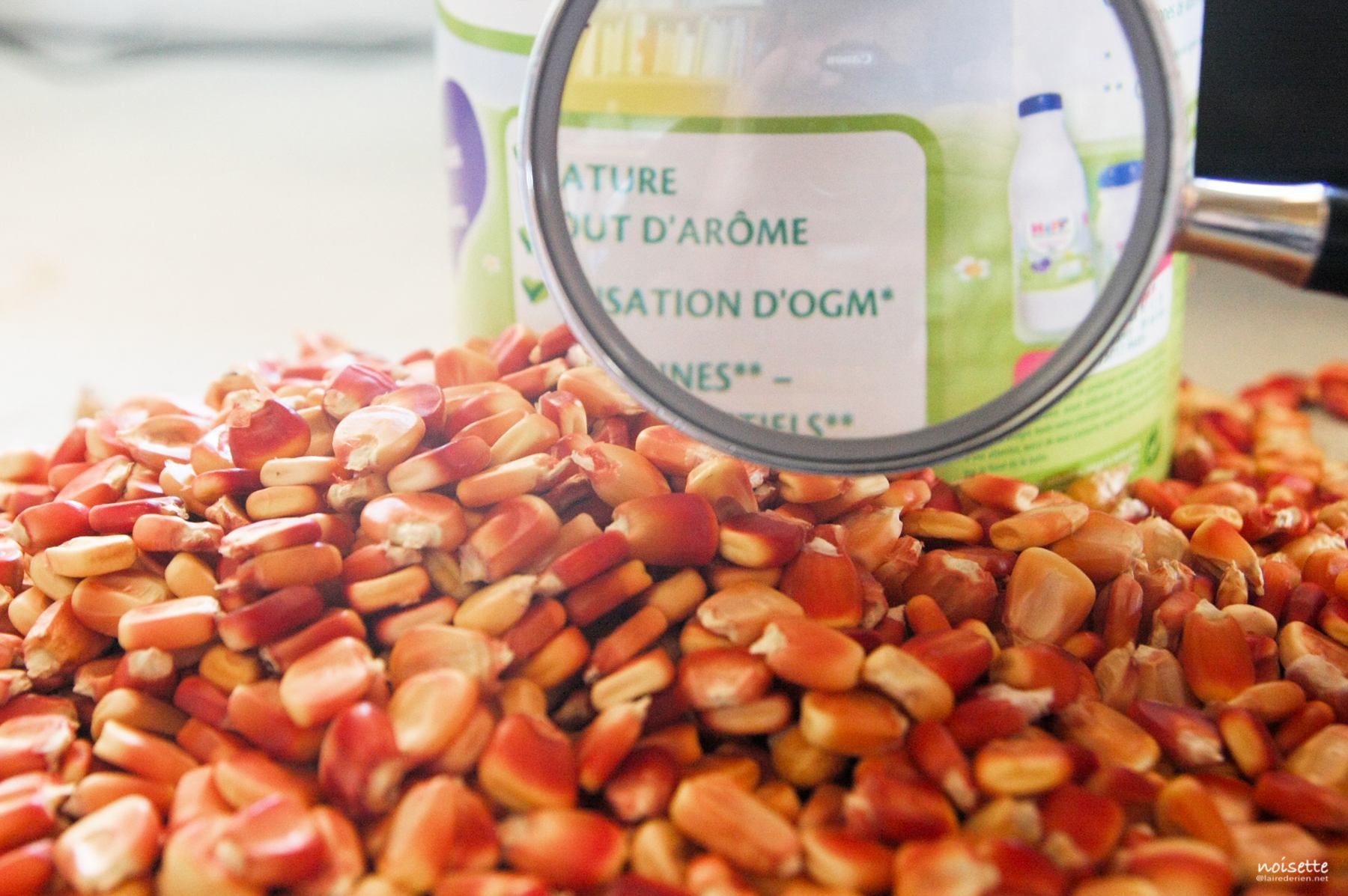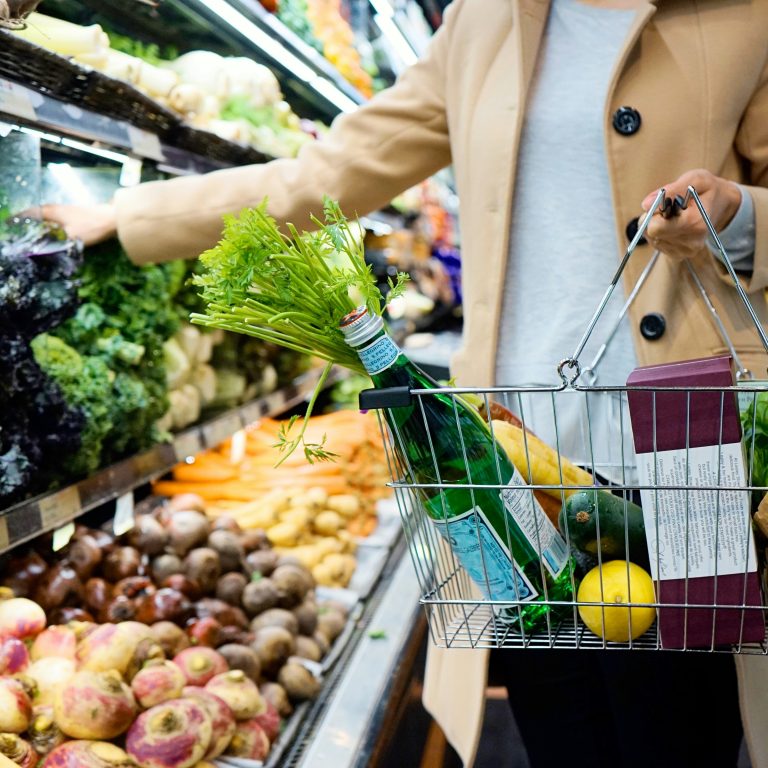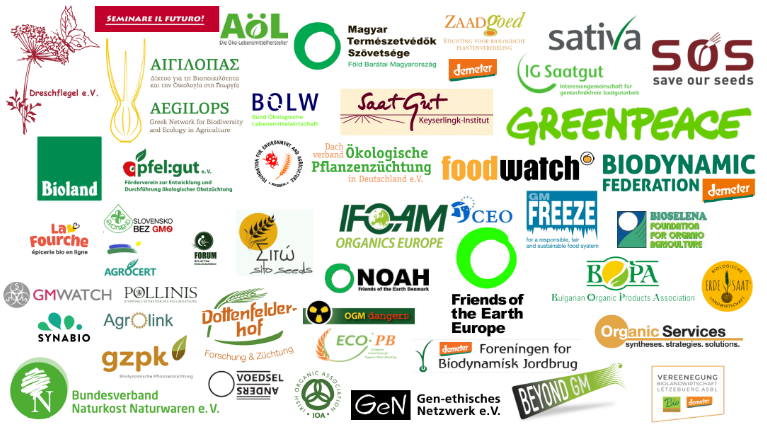GMOs/NGTs: consumers want a choice

At a conference organized at the European Parliament on October 26, 2023 by Socialist MEP Christophe Clergeau, the French consumer association UFC-Que Choisir, through the voice of Olivier Andrault, was clear: GMOs, whether “classical” or renamed NGT (New Genomic Techniques), must be assessed, labeled, and present real benefits, notably for the end consumer. The position of France’s leading consumer federation is identical to its position on transgenic GMOs.
At the end of October, the French consumer association UFC-Que Choisir added its voice to the chorus of positions already expressed by its European counterparts in Germany, Austria, Norway and France [1].
Introducing his speech to the European Parliament on October 26, Olivier Andrault, head of the food mission at UFC-Que Choisir, France’s largest consumer association, stressed from the outset that the scientists who had spoken at the conference had clearly shown that NGTs are GMOs. For him, the debate is not new, and is part of a historical continuity and a specific socio-economic context. For UFC-Que Choisir, the issue is not to be for or against GMOs, but rather to ensure that a certain number of conditions are met. Six conditions seem unavoidable.
The conditions necessary for the acceptance of GMOs
These conditions derive from the implementation of the precautionary principle and respect for consumers’ freedom of choice. For UFC-Que Choisir, GMOs can be marketed on condition that:
- they carry no short- or long-term environmental or health risks;
- they bring benefits to all users along the food chain, and in particular to end consumers;
- it is very difficult or impossible to obtain the same benefits with conventionally bred plants;
- producers have the possibility of choosing whether or not to use these GMOs/NGTs;
- strict traceability throughout the production chain is mandatory;
- end consumers be informed of the possible presence of a GMO/NGT in the product they are about to buy.
This last condition is the spearhead of his organization. He has repeated it several times: “we demand that the consumer be in the position of having a free and informed choice to buy or not to buy products containing or produced from GMOs/NGTs”.
After listing these conditions, Olivier Andrault drew up a rapid, critical assessment of current legislation and “conventional GMOs”. In his view, risk assessment as currently established is really limited: it only looks at short-term impacts. He notes that, for example, the assessment of benefits for all is not taken into account. UFC-Que Choisir is therefore calling for long-term environmental monitoring of GMOs/NGTs. Another flaw in current legislation is labeling. It recognizes that products intended for human consumption must be labelled, but regrets that this labeling does not apply to products from animals fed on GMOs. For UFC-Que Choisir, this is a major shortcoming.
Finally, he refers several times to the promises made 20 or 30 years ago: to fight world hunger, improve the nutritional quality of food, use fewer pesticides… The reality is that GMOs marketed since the 90s are designed to tolerate herbicides or produce insecticides. And, as a result, the cultivation of these GMOs has led to a greater quantity of pesticides being sprayed (notably due to plants becoming resistant to herbicides). Thus, Olivier Andrault asserts: “the “pragmatic” conclusion of UFC-Que Choisir on conventional GMOs was and remains that they bring no benefit and that it is always difficult to make a choice, so we are opposed to these conventional GMOs“.
Lack of knowledge and precaution relegated
The rest of his presentation takes a more detailed look at GMOs/NGTs and the Commission’s proposal to deregulate them. He noted a number of important blind spots in the scientists’ presentations, and a notorious lack of knowledge about these new genetic modification techniques. The scientists interviewed stated that categories 1 and 2 are “arbitrary”, that there is nothing scientific about their definition, and that there is no link with the level of risk.
As for the Commission’s proposal, the UFC-Que Choisir spokesperson notes that it contradicts the precautionary principle. In fact, for many future GMOs (category 1 NGTs), the Commission is proposing to do away with risk assessment and reduce the current regulatory framework (assessment, authorization, labeling, etc.) to a simple declaration procedure [2]. However, he adds, “what concerns us greatly is that a very large number of NGTs will be classified in category 1, for which the level of obligation will be extremely low”. This proposal, the consumer association points out, removes the possibility for Member States to oppose the cultivation of such GMO/NGT plants on their territory [3].
No traceability, no labeling, no real benefits
As a consumer protection association, the Commission’s proposal to abolish traceability and labeling of GMOs/NGTs is particularly shocking for UFC-Que Choisir. This has several implications.
The first is that the absence of traceability and labeling will lead to an enormous risk of contamination of “conventional” or organic products, and de facto widespread contamination. And who will pay if organic products are contaminated? UFC-Que Choisir regrets not having received an official answer to this question.
The second implication is the impossibility for producers and consumers to make an informed choice.
With such a proposal, UFC-Que Choisir criticizes, “there is no possibility of making an informed choice, of buying or not buying products containing such NGTs. Yet this is the main demand of our association”. Added to this is UFC-Que Choisir’s concern that these GMOs/NGTs should bring real benefits to consumers. On this point too, Olivier Andrault is more than skeptical. “I can’t see how the promises made previously are any different from those currently being made for NGTs”, he asserts. For him, diet-related health problems are due to “industrial recipes” (sic) that involve too much sugar, saturated fat, salt, food additives… He also refers to the problems of packaging and the use of bisphenols. And the causes of overpriced food are to be found in the management of national or local production. But in both cases, he insists, “it has nothing to do with NGTs”.
After such an argument, Olivier Andrault concludes: “UFC-Que Choisir, as it stands, is not in favor of these GMOs/NGTs, and demands that all NGTs go through a full authorization procedure, that member states be able to oppose such GMOs/NGTs, and that full traceability and labeling on packaging for all category 1 and category 2 NGTs be mandatory”.
[1] ,
, « Une large gamme d’acteurs opposés à la dérèglementation des OGM », Inf’OGM, 24 October 2023.
[2] , « The European Commission wants to put an end to GMOs », Inf’OGM, 24 July 2023.
[3] , « OGM – La Commission veut achever de restreindre la liberté des États », Inf’OGM, 23 August 2023.












